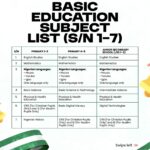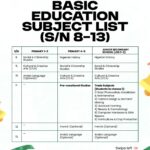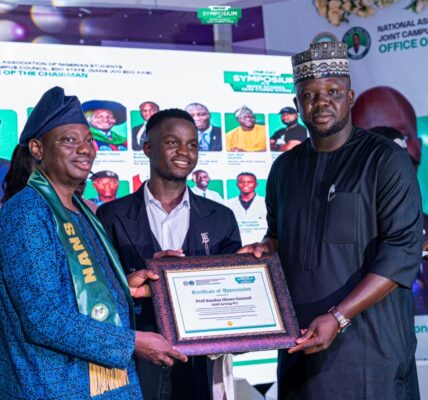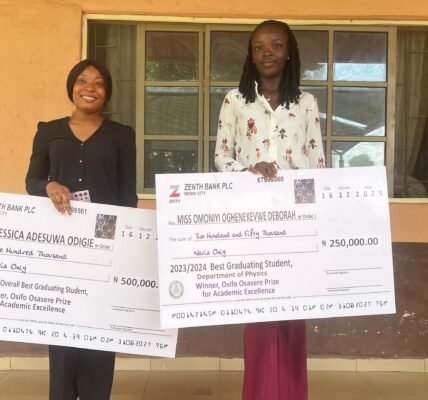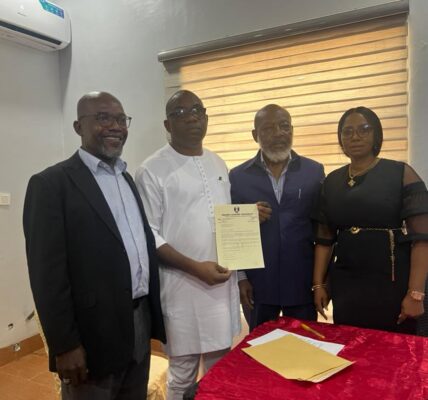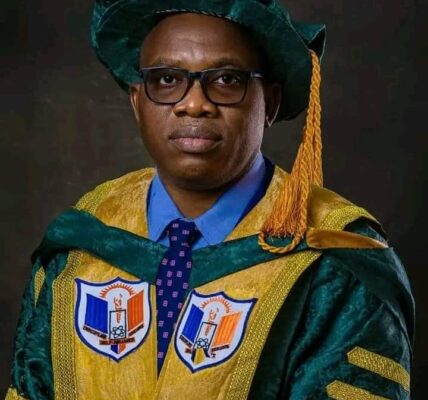FG Makes Skills Acquisition Compulsory for Pupils, History Studies, in New Schools Curriculum
The Federal Ministry of Education has unveiled a new curriculum for primary and secondary schools in Nigeria, replacing some subjects with solar installation, GSM repairs, etc.
The new curriculum which the ministry revealed on its X handle late Sunday includes fewer subjects than the previous.
According to the ministry, the new curriculum brings “lighter load, stronger minds.”
“Beginning in the 2025/26 academic year, Nigerian schools will teach fewer, more focused subjects across primary, junior secondary, senior secondary, and technical pathways to cut overload and deepen learning,” it said.
In the new curriculum, Tinubu’s government through the Education ministry revealed that National history would become compulsory for Primary 3 to JSS classes.
The ministry revealed that the landmark decision followed wide consultations with the Nigerian Educational Research and Development Council (NERDC), WAEC, NECO, NBTE, NABTEB, and other critical stakeholders in curriculum design and assessment.
In a press statement dated 3rd September, 2025 and signed by Boriowo Folasade, Director, Press and Public Relations, the ministry of education said it is unveiling skill acquisition as part of the subjects.
It read; “The Honourable Minister of Education, Dr. Maruf Tunji Alausa, CON, alongside the honourable Minister of State for Education, Professor Suwaiba Sa’id Ahmad, has announced a major review of the national curriculum. The reform is designed to reduce subject overload, promote skill development, and align Nigerian education with global best practices.”
It further highlighted that, “Trade subjects for non-technical schools have been streamlined from over 30 to six practical areas: Solar PV Installation and Maintenance, Fashion Design and Garment Making, Livestock Farming, Beauty and Cosmetology, Computer Hardware and GSM Repairs, and Horticulture and Crop Production.
“In addition, National Business and Technical Examinations Board (NABTEB) will now administer 28 revamped trade subjects for technical colleges. WAEC and NECO subjects have also been aligned to reflect the revised structure, focusing on core areas and relevant trades,” the statement added.
The key changes in the new curriculum include a reduction in the number of subjects across a sharper focus on five core areas: Humanities, Sciences, Business, one trade subject, as subjects; Primary 4 to 6 will study 11 to 13 subjects; Junior Secondary School (JSS 1–3) will take 12 to 14 subjects; while Senior Secondary School (SSS) will retain 8 to 9 subjects, with well as the core and compulsory general courses. The Nigerian Language subject has also
all levels.
Pupils in Primary 1 to 3 will now take a minimum of 9 and a maximum of 10 been streamlined to only offer the following languages; Hausa, Igbo and Yoruba.
The new policy highlight includes that citizenship and Heritage studies has been added for SSS classes.
The ministry explained further that, Pupils in Primary 1 to 3 will now take a minimum of 9 and a maximum of 10 subjects; Primary 4 to 6 will study 11 to 13 subjects; Junior Secondary School (JSS 1–3) will take 12 to 14 subjects; while Senior Secondary School (SSS) will retain 8 to 9 subjects, with a sharper focus on five core areas: Humanities, Sciences,

